On Friday, March 27, 2020, our Federal Government has passed the $2 Trillion CARES Act, also known as the “Coronavirus Relief Package”, and President Trump signed it into law. We want you to be aware of the provisions regarding the financial assistance in order to take full advantage of the cash disbursements.
The stimulus payments are set at $1,200 for individuals and $2,400 for married couples who file joint tax returns. There's also a $500 payment for each qualified child (age 16 and under). So, for example, a married couple with two children (who are dependents) could receive $3,400. Here’s a good, user-friendly calculator: https://www.washingtonpost.com/graphics/business/coronavirus-stimulus-check-calculator/.
The full stimulus payment will be given to Americans with adjusted gross income (AGI) under certain thresholds on their most recently filed tax return in 2019, or 2018 if that hasn't been filed yet. With AGI above these thresholds, the payments are gradually reduced at the following tiered levels of about $5 for every $100 you’re over the limit:
We’ve received a few questions about eligibility changing from “not eligible in 2018” to “became eligible in 2019”:
Please note that if you have not filed your 2019 income taxes yet, the IRS will use your 2018 Adjusted Gross Income (AGI). If you had an AGI in 2018 that exceeded the above limits, but you ended up within the maximum limits in 2019, it’s important that you get your tax returns filed quickly. We aren’t sure yet what timelines are for missing the 2019 return deadlines, but not to worry! Even if you miss out now, you will benefit once you file your 2020 taxes. That’s because the payment is technically an advance on a tax credit that is available for the entire year.
In addition to the above, if you, or someone you know has not filed tax returns for 2018 or 2019, the IRS will examine income records reported by Social Security. People should be able to get a stimulus check based on these records as well.
The IRS will use the bank account on file if you direct deposited your refund in 2018 or 2019 or will mail a check to the address of your last tax return. The IRS will send a notification of the amount to be received, how it will be sent and a phone number to call if the payment doesn’t reach you. You may use IRS Form 8822 to change your address with the IRS.
The CARES Act also enhances unemployment insurance by extending the duration by 13 weeks, expanding eligibility to self-employed workers and increasing the weekly payout by $600 for a period of four months.
Other key provisions include:
Is our Stimulus Check Taxable? No it is not.
IRAs and Employer Retirement Accounts
Penalty-free distribution of up to $100,000 from IRA or employer plan in 2020 due to COVID-19 or adverse financial consequences
Must be paid back to account over 3 years, or
Taxable, but income may be spread over 3 years
Loans from employer plans, such as 401(k)s, can be taken up to $100,000 and 100% of vested balance may be used
RMDs are suspended for 2020 from IRAs, employer plans and inherited IRAs
If you have already taken RMD in 2020, you may be able to roll it back in certain cases, or it could be considered a COVID-19 related distribution (see above) with taxes spread over 3 years
Student Loans
Federal student loan payments are deferred until September 30, 2020 with no interest accruing in the interim
Involuntary debt collections on Federal student loans are suspended
Health Savings Accounts (HSAs)
Definition of medical expenses for HSAs expanded to include over-the-counter medication and feminine care products
Telehealth services temporarily covered by HSA-eligible plans
Medicare
Medicare Part D recipients can request up to 90-day supply of medication
COVID-19 vaccine will be 100% covered by Medicare when available
Small Businesses:
The CARES Act also has several benefits for small businesses, forgivable loans, deferred payment of payroll taxes, and loosening of net operating loss rules. All are currently administered through the Small Business Administration (SBA) https://www.sba.gov/funding-programs/disaster-assistance. Here are a few of the provisions:
Includes money for employee salaries under $100,000; paid sick or medical leave; insurance premiums; and mortgage, rent and utility payments
Sets the funds up as a loan that is eligible for 100% forgiveness if used for the above purposes and in conjunction with guidelines related to staff retention
Provides funding for businesses or 501(c)(3) nonprofits with less than 500 employees, including sole-proprietors, independent contractors, and other self-employed individuals
Waves affiliation rules for businesses in the hospitality and restaurant industries, and specifies that businesses with more than one physical location can be eligible so long as no one location employees more than 500 individuals
People that may be excluded
There are some people that may end up being excluded by the stimulus package. These include children or family members that are dependents, over the age of 16, and have not filed a tax return on their own or as a dependent on another taxpayer’s return Many college students will be excluded under these provisions.
We know these are confusing times, especially regarding your finances. Please DO NOT hesitate to call us if you have any questions or concerns!




